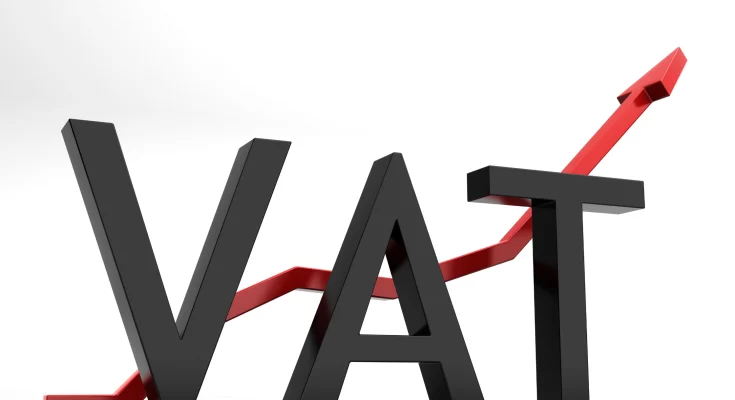The South African government has announced a planned increase in the Value-Added Tax (VAT) rate as part of its fiscal policy adjustments for the 2025-26 tax year.
The proposal, outlined in the 2025 budget speech, has sparked debate among lawmakers and stakeholders, with concerns over its economic impact and parliamentary approval timeline.
VAT Rate to Rise in Two Stages
Effective May 1, 2025, the standard VAT rate will rise from 15% to 15.5%. A further increase to 16% is scheduled for April 1, 2026. The staggered adjustment aims to bolster government revenue amid growing fiscal challenges.
To cushion the impact on low-income households, the government has proposed an expansion of the VAT zero-rated food list, adding essential items such as canned vegetables, dairy liquid blends, and specified organ meats.
Social Grants and Income Tax Remain Unchanged
Alongside the VAT hike, the budget includes moderate increases in social grants. Old age and disability grants will rise to ZAR 2,315 (US$126) from ZAR 2,185 (US$119), while child support grants will increase to ZAR 560 (US$30) from ZAR 530 (US$28).
However, individual income tax brackets, rebates, and medical tax credits will remain unchanged for the upcoming fiscal year.
Transfer duty rates on property transactions not subject to VAT will also be adjusted, with changes taking effect on April 1, 2025.
Deloitte Warns of Revenue Risks as Ghana Moves to Scrap E-Levy, Betting Tax
Parliamentary Debate Could Delay Implementation
The proposed VAT increase has not been without controversy. The budget, tabled by Finance Minister Enoch Godongwana on March 12, 2025, has faced resistance from major political parties.
While the initial proposal suggested a 2-percentage-point increase, it was revised to a more gradual 1-point hike over two years in response to political pushback.
Despite the adjustments, there is no certainty that the budget will pass before the fiscal year ends on March 31, marking an unprecedented delay in South Africa’s post-apartheid era.
The ruling African National Congress (ANC) will need to secure support from at least one major opposition party to ensure its approval.
What Happens if the Budget Fails?
If the budget is not passed by April 1, the government is legally permitted to continue operating on up to 45% of the previous year’s budget until parliamentary approval is secured.
However, new allocations, including those linked to tax reforms, cannot be implemented without formal approval.
Despite the parliamentary deadlock, the National Treasury has confirmed that the VAT increase can take effect from May 1, 2025, even if the budget is not yet passed.
The tax rate change, once implemented, would remain valid for up to 12 months unless lawmakers overturn the decision through legislative amendments.
Next Steps for Lawmakers
Parliament will review the budget in three key stages: approving the fiscal framework and revenue proposals, passing the division of revenue bill to allocate funds among government tiers, and finally voting on the appropriation bill to assign funding to specific programs.
Lawmakers have until April 3 to approve the fiscal framework, but delays could extend the process. While amendments to the budget are possible, any changes must align with the overall revenue and expenditure limits set out in the proposal.
The ANC, which lost its parliamentary majority for the first time in South Africa’s democratic history, faces a tough negotiation process. Secretary-General Fikile Mbalula has expressed willingness to engage with opposition parties to secure a deal.
Meanwhile, Minister Godongwana has indicated openness to alternative proposals but has warned of the difficult trade-offs required.
Economic and Policy Implications
The VAT increase, coupled with other tax adjustments, is expected to play a crucial role in stabilizing South Africa’s fiscal position.
However, the political uncertainty surrounding budget approval adds a layer of unpredictability to the implementation process.
As the debate unfolds, taxpayers, businesses, and investors will closely monitor the developments, given the broader economic implications of the proposed tax hikes and fiscal policies.




